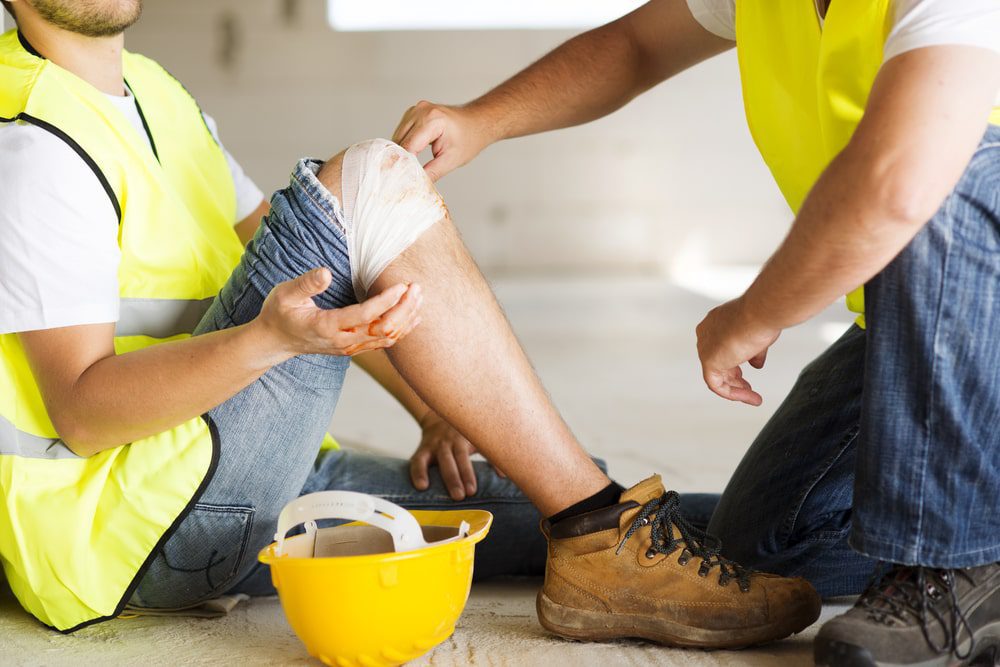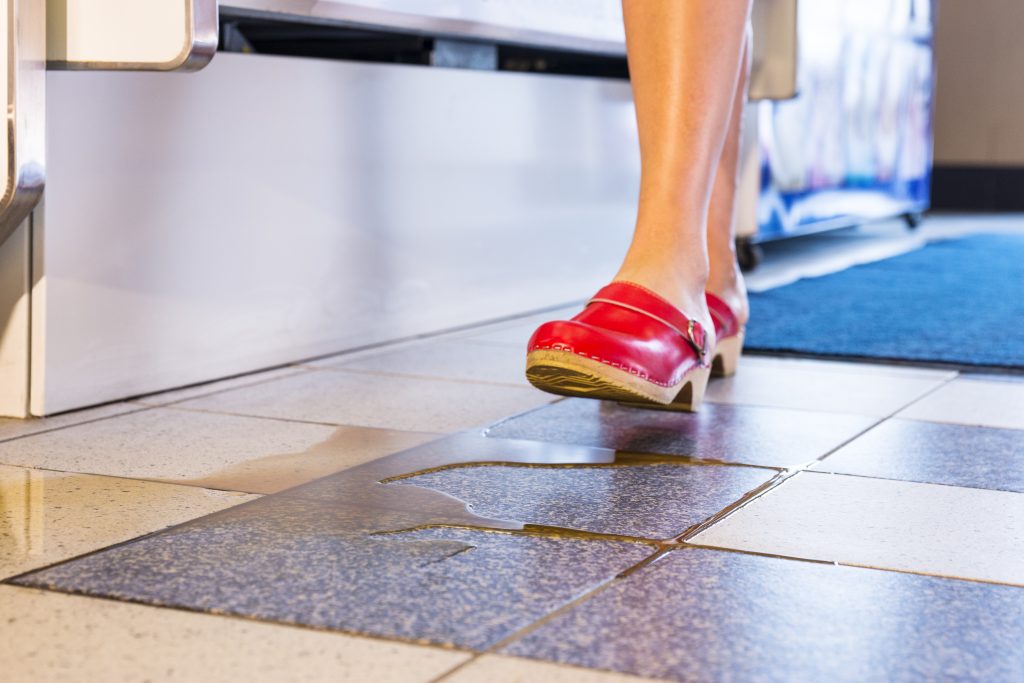Premises Injuries/Falls
Every single day, we enter property that is owned by someone else – it could be a store, a parking lot or some other business. Sometimes those properties can hide dangerous conditions that pose an unreasonable risk of harm to the general public. In those cases, the owner of the store/property must take reasonable precautions to make the area safe or to warn visitors of the potential dangers. If they fail to do so, you may have a valid case under Texas premises liability laws.
What Is a Premises Injury?
A premises injury happens when you are injured by hazardous or generally unsafe conditions on someone else’s property. This scenario is also known as premises liability.
Just because you were injured on someone else’s property doesn’t mean you have a valid premises liability case. Similarly, just because the property you were injured on was in an unsafe condition doesn’t always mean that the property owner will be found negligent. It all depends on the specific details and circumstances of your case.
The court will usually find that if the property owner is negligent, then they did not use reasonable care regarding their property. You will most likely have to prove that the property owner knew or should have reasonably known that their premises were unsafe, yet still decided not to fix the problem until someone got injured. Another key issues is whether the owner took any steps to warn visitors of the danger – like putting up warning signs.

Premises Liability in the State of Texas
At Gustin Law Firm, we represent injured people all over the state of Texas. If you’re in the Greater Houston area, you may be wondering what laws apply regarding premises liability in the state of Texas. Read on to find out more.
If you want your premises liability case to be successful in Texas, you as the injured person must establish the following three things:
- The defendant owed a legal duty of care to you
- The defendant clearly breached their duty of care
- As a result of the defendant breaching their legal duty of care, you suffered damages
All premises liability cases are different, and the specific duty of care that the defendant owed you will vary, depending upon whether you were a licensee, trespasser, or invitee when the premises injury occurred.
In the state of Texas, if you were a licensee, then the defendant had a duty to warn you of any potentially dangerous conditions that were on the property. These dangerous conditions must have been unknown to you but known to the defendant. The defendant could also have made the dangerous conditions safer by applying a temporary solution.
In Texas, as a trespasser, the only duty of care you were entitled to from the defendant was the duty to not cause you injury by willfully, wantonly, or grossly negligent means.
As an invitee in Texas, the defendant owed you the highest duty of care. The defendant must have warned you about any dangerous conditions on the property or made those risky conditions safe.
This standard applies to any dangerous conditions that the defendant knew about as well as to any defects that the defendant could have discovered had they conducted a reasonable inspection of the property.
The law of attractive nuisance often pops up in Texas regarding premises liability cases. This law requires that property owners be found liable for injuries to children/minors who trespass onto their property if the injury results from objects that appear to be fun or entertaining.
For this law to apply, there must be a dangerous set of objects or a dangerous condition on the property. The hazardous condition or object must be likely to attract children who would be unable to understand or assess the risks involved with interacting with the object.
Some examples of an attractive nuisance include construction equipment, a gravel pit, or a swimming pool.According to the law of attractive nuisance, property owners are required to do everything necessary to keep children away from the dangerous object or condition on their property. To accomplish this, a property owner might set up a fence, put up barriers, or install locking doors to keep the attractive nuisance out of a child’s reach.
There are many states that require property owners to engage in reasonable care when it comes to the maintenance of their property and anyone who might enter that property.
Other states, however, apply a rule that limits the property owner’s duties depending on what type of visitor comes onto the premises. In these states, there are three types of visitors: invitees, licensees, and trespassers. Ask your premises attorney if the state that you reside in applies this rule.
An invitee is a person who has the permission of the property owner to enter the property. These are usually friends, family, or neighbors of the property owner. Property owners owe a duty of reasonable care to keep their property safe for any and all invitees.
A licensee also has the permission of the property owner to enter the property but is entering the property for a specific purpose. For example, a licensee could be a salesman who the property owner allows onto their property or into their home.
Landowners tend to owe a less rigorous duty of care to licensees. Usually, licensees are only subject to a duty to warn. This means that a property owner would only need to warn a licensee about potentially dangerous conditions that might create an unreasonable risk of harm.
This duty, however, only applies if the licensee likely won’t discover the dangerous condition on their own and if the property owner is aware of the unreasonable or dangerous condition.
A trespasser is a person who does not have the permission of the property owner to be on the property. In the past, property owners did not owe any duty of care to trespassers unless the trespasser turned out to be a child.
Not sure if you were a licensee, trespasser, or invitee? Ask your premises lawyer to explain the differences to you. A premises lawyer will be able to elaborate on the information above and answer any questions you’re wondering about.
All in all, premises liability law involves the legal principles that make property owners responsible when someone enters their property (regardless of the reason) and ends up getting injured due to the property’s dangerous condition.
There are several exceptions, but most premises liability claims are based on establishing negligence and examining how the duty of care was enforced (or not enforced) in the scenario where an injury occurred. Property owners have varying degrees of duty to care depending on the type of visitor who is on their property.
Common law, or state precedent, is the main source of law that determines the outcome of a premises liability case. Other important sources include state statutes, municipal ordinances, and any local building codes.
Regarding premises liability cases, expect to see many slip and fall cases, as these are the most common types of accidents resulting in premises liability. Other common types of premises liability accidents involve wet floors, accumulated snow and ice, unmarked obstacles, falling objects and faulty stairs.
Examples of Premises Injury Cases
Premises injury cases come in many shapes and sizes. Examples of situations that can cause premises injuries include:
- Wet or slippery floors
- Water puddles or ice buildup
- Spilled substances on the floor
- Bad lighting
- Dangerous steps or stairs
- Loose or broken floorboards
- Malfunctioning elevators or escalators
- Falling objects from overhead
- Lack of proper building security in place
- Dangerous areas in amusement parks or trampoline parks
- Poorly maintained premises
- Defective conditions on the premises
- Aggressive or biting dogs or other animals
- Unsecured swimming pools
- Fires
- Toxic fumes

An experienced Houston TX premises liability attorney will be able to determine whether your injury meets the factual standard to be treated as a premises liability case.
Turn to Gustin Law Firm if you have suffered a Premises Injury
If you want more information about premises liability and your potential case, contact the experienced premises lawyers at Gustin Law Firm today. We serve clients in Houston and all of Texas, and we can use our experience to help you.
Click the “Call Now” button to schedule a free, no-obligation consultation with one of our Houston premises injury attorneys to see how we can help you.
Contact Us
Complete the form and I will contact you shortly

